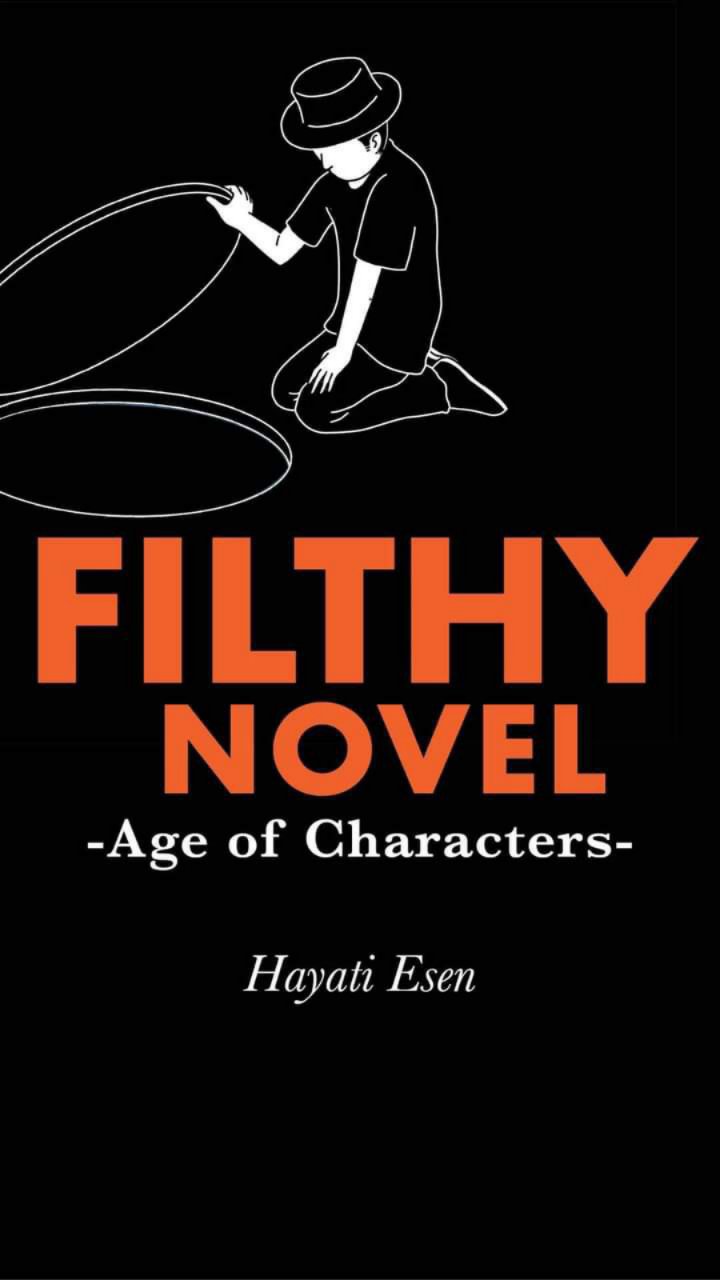At 8:30 in the evening Abdulgaffar met Rüveyda at the Çiçek Pastry Shop. It was a good idea to meet her after the waves of Hayrullah’s entel waves throughout the day. The traffic density of the street had decreased; civil servants and students were either heading home or piling into cafes where they met their friends. The crowds of the streets were replaced by the crowds of cafes and patisseries. Rüveyda, who had arrived earlier, had already taken her place at the table for three by the window. After greeting her with a smile, Abdulgaffar thought of telling her that the kohl she had put on her eyes did not suit her at all, but he guessed what the consequences of saying that would be. Rüveyda was someone who believed that everything she did suited her. She was very easily offended by such criticism and comments. Perhaps this was where her curiosity and love for theater and art was fed from. Believing that what she did suited her, thinking that everyone would like her…
-Hussein (Rüveyda calls Abdulgaffar Hussein); when I read Hayrullah’s speeches about me in the author’s text, I was very angry, but when I saw you defending me, my love and feelings for you changed in a different way. I believed even more that you love me, that you are in love with me. I don’t want you to turn to such political discourse. Be political but don’t politicize!
-Hayrullah is good… Just yes, as you say, too politicized. And he’s always obsessed with German philosophers, especially Kant. But I think if you read Kant, you should read Ghazali in return. Whenever he tells me about Kant, I always think of Ghazali.
-What does Ghazali say?
- Ghazali and Kant’s narrative of the limits of knowledge is actually close to each other, we could even say the same. Kant says, “Our knowledge cannot go beyond human experience and is limited to the objective realm.” Ghazali says the same thing; that the metaphysical realm is beyond our experience. I wonder if I should tell him that he should read al-Ghazali.
What does he know about al-Ghazali? He’s obsessed with European enlightenment. Didn’t you notice the other day when we were sitting together? He was telling me how the French theaters of the 18th century spread to German cities, Vienna, Russia. I felt depressed. He was trying to show me how much he knew about theater. We live in the age of Google, what are you going to do with all this encyclopedic information! Artificial intelligence is taking over. While I’m wondering if theater and art will remain, while artificial intelligence is writing the scripts, this guy is telling me about 18th century theater. That child is sick…
Rüveyda’s self-confidence amazes me. While I was imagining her as a much quieter, modest, introverted, manageable character, a monster came out of her. Let’s say the word “monster” is a bit harsh, but what kind of arrogance and know-it-allism is this? No, sir, we live in the age of Google and what do we need information. Did Google create you?
-You know, sometimes I think this writer is gossiping about me? I can feel the neurons vibrating in his brain. He wants me to be a quiet woman who does what he says. This writer is very conservative, I’ve been saying this since the beginning of the novel. I wish you had written me, Hüseyin. What a wonderful character you would have drawn for me as an enlightened, successful person who has studied the West and the East. Maybe Sümeyye was wrong about you.
-Who is Sumeyye? What did she say to you that she was wrong about me?
-Hmm… Somayeh is the character the author killed. Something strange happened. She sent me a letter. I had an argument with the writer the other day. He killed her, this maniac! He said she refused to become a great novelist after becoming a prostitute. Can’t you see how this writer writes his novels?
-No, how can I? I can only see my own stage lines. -You can see others?
-Yes, why?
-Hmm… Maybe the writer cares more about you. Or will you be the hero of the novel?
-Ha ha ha ha, are you jealous? -You look jealous too, I realized that. Let me ask you something else. Do you think this writer is a man or a woman?
-I don’t know… I think it’s a man.
-I think it’s a man. He makes us use very masculine language, he seems very simple to me. I’ve never warmed up to him, you know? He has a problem with women. Is there a man in the country who doesn’t have a problem with women?
After this short but heated conversation, Rüveyda got up from the table she was sitting at and said, “Hüseyin, could you order me a cake and tea?” as she headed towards the sink. Ten minutes later she returned to the table. “Hüseyin, this writer is really a man…” she said.
-How did you know? -said Abdulgaffar.
-Because I went to the restroom and back and he didn’t write anything about what happens in the restroom. If he was a woman, he would have written a few lines about why we women take so long in the restroom or what goes on in there. I waited ten minutes, nothing about that, not two lines. The man hasn’t seen the women’s restroom and doesn’t know what we do there, so he can’t write about it. Look, if you go there, he’ll definitely write something. Try it if you want, Rüveyda said.
-It could be. I don’t really care who the writer is. In the digital age, there is no distinction between men and women anymore! In an age where artificial intelligence equalizes all genders…
-You’re right. But I think I’m obsessed with this writer.
-Obsessed? Don’t fall in love with this man, Abdulgaffar looked at Rüveyda with narrowed eyes. Rüveyda laughed;
-Don’t be silly. You are my only love!
A love between the author and the character of the novel can happen at any moment. I think every novelist is in love with one of the characters he has created. There is a writer called Mario Levi, who said in an interview, “I fell a little in love with Nedret,” one of the characters he created. Especially readers… They fall in love with the characters of novels. I have seen many such people. In my novel, I’m going to make Rüveyda fall in love with me. I realize it will be a very disgusting and repulsive thing for a writer. It’s like playing God, like saying, “My servants are in love with me!” Never mind… Maybe this is how I will get my revenge on this asshole. This woman hasn’t stopped insulting and attacking me since I put her on stage as a fictional character.
-Shall we go to the theater tomorrow? – said Rüveyda.
-Oh, no, I don’t like going to the theater. Whenever I go, I encounter terrible acting, said Abdulgaffar.
-But Ankara theater is much better than Istanbul theater. I think let’s go tomorrow, okay? Please!
Abdulgaffar could not break him;
-Okay, he said.





